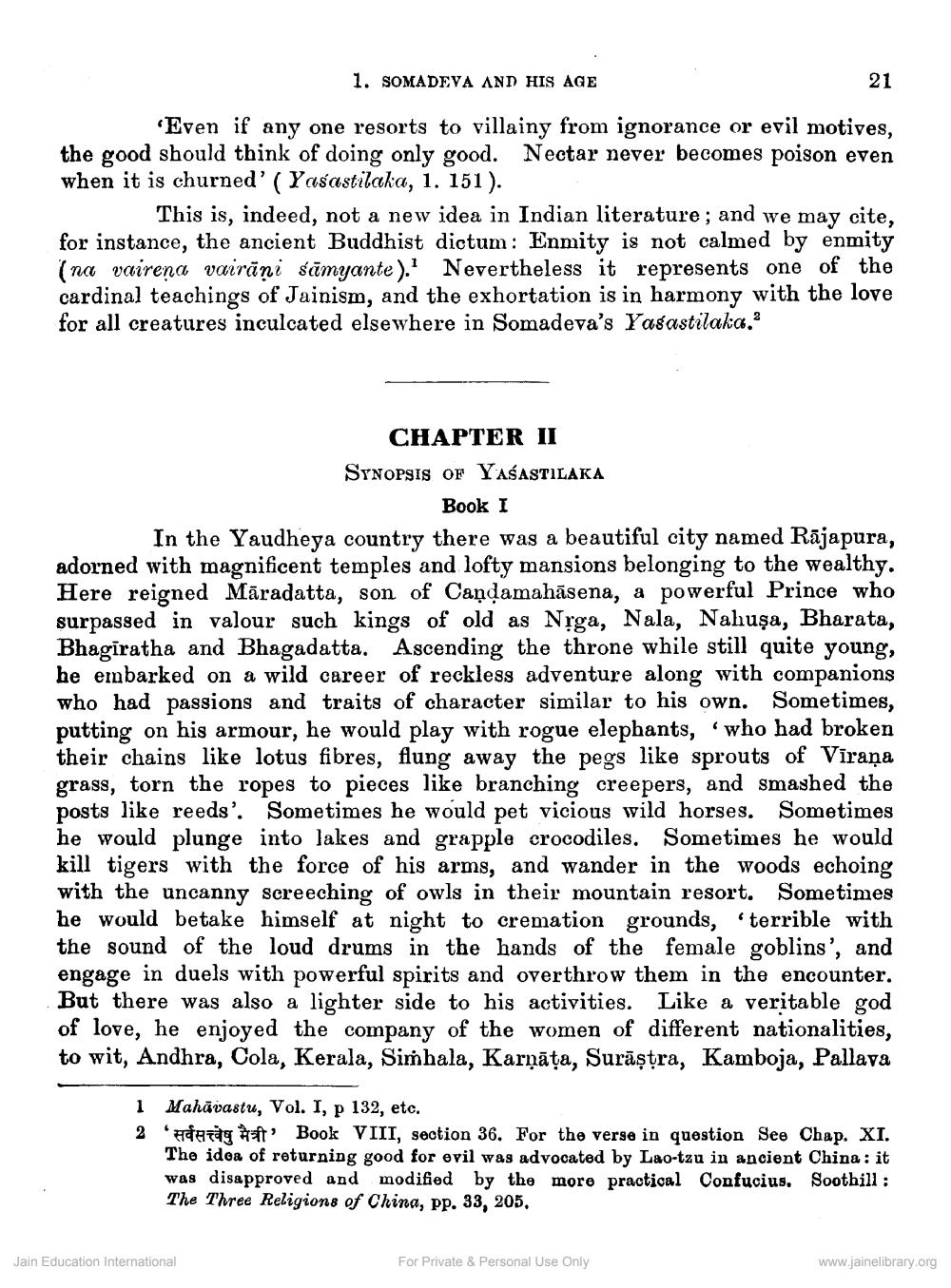________________
1. SOMADEVA AND HIS AGE
21
Even if any one resorts to villainy from ignorance or evil motives, the good should think of doing only good. Nectar never becomes poison even when it is churned' (Yasastilaka, 1. 151).
This is, indeed, not a new idea in Indian literature, and we may cite, for instance, the ancient Buddhist dictum: Enmity is not calmed by enmity i na vairena vairāni samyante). Nevertheless it represents one of the cardinal teachings of Jainism, and the exhortation is in harmony with the love for all creatures inculcated elsewhere in Somadeva's Yasastilaka.
CHAPTER II SINOPSIS OF YAŠASTILAKA
Book I In the Yaudhega country there was a beautiful city named Rājapura, adorned with magnificent temples and lofty mansions belonging to the wealthy. Here reigned Māradatta, son of Candamahāsena, a powerful Prince who surpassed in valour such kings of old as Nrga, Nala, Nahuşa, Bharata, Bhagiratha and Bhagadatta. Ascending the throne while still quite young, he embarked on a wild career of reckless adventure along with companions who had passions and traits of character similar to his own. Sometimes, putting on his armour, he would play with rogue elephants, who had broken their chains like lotus fibres, flung away the pegs like sprouts of Viraņa grass, torn the ropes to pieces like branching creepers, and smashed the posts like reeds'. Sometimes he would pet vicious wild horses. Sometimes he would plunge into lakes and grapple crocodiles. Sometimes he would kill tigers with the force of his arms, and wander in the woods echoing with the uncanny screeching of owls in their mountain resort. Sometimes he would betake himself at night to cremation grounds, terrible with the sound of the loud drums in the hands of the female goblins', and engage in duels with powerful spirits and overthrow them in the encounter. But there was also a lighter side to his activities. Like a veritable god of love, he enjoyed the company of the women of different nationalities, to wit, Andhra, Cola, Kerala, Simhala, Karņāța, Surāștra, Kamboja, Pallava
1 Mahāvastu, Vol. I, p 132, etc. 2 aTag #t' Book VIII, section 36. For the verse in question See Chap. XI.
The idea of returning good for evil was advocated by Lao-tzu in ancient China: it was disapproved and modified by the more practical Confucius, Soothill : The Three Religions of China, pp. 33, 205.
Jain Education International
For Private & Personal Use Only
www.jainelibrary.org




